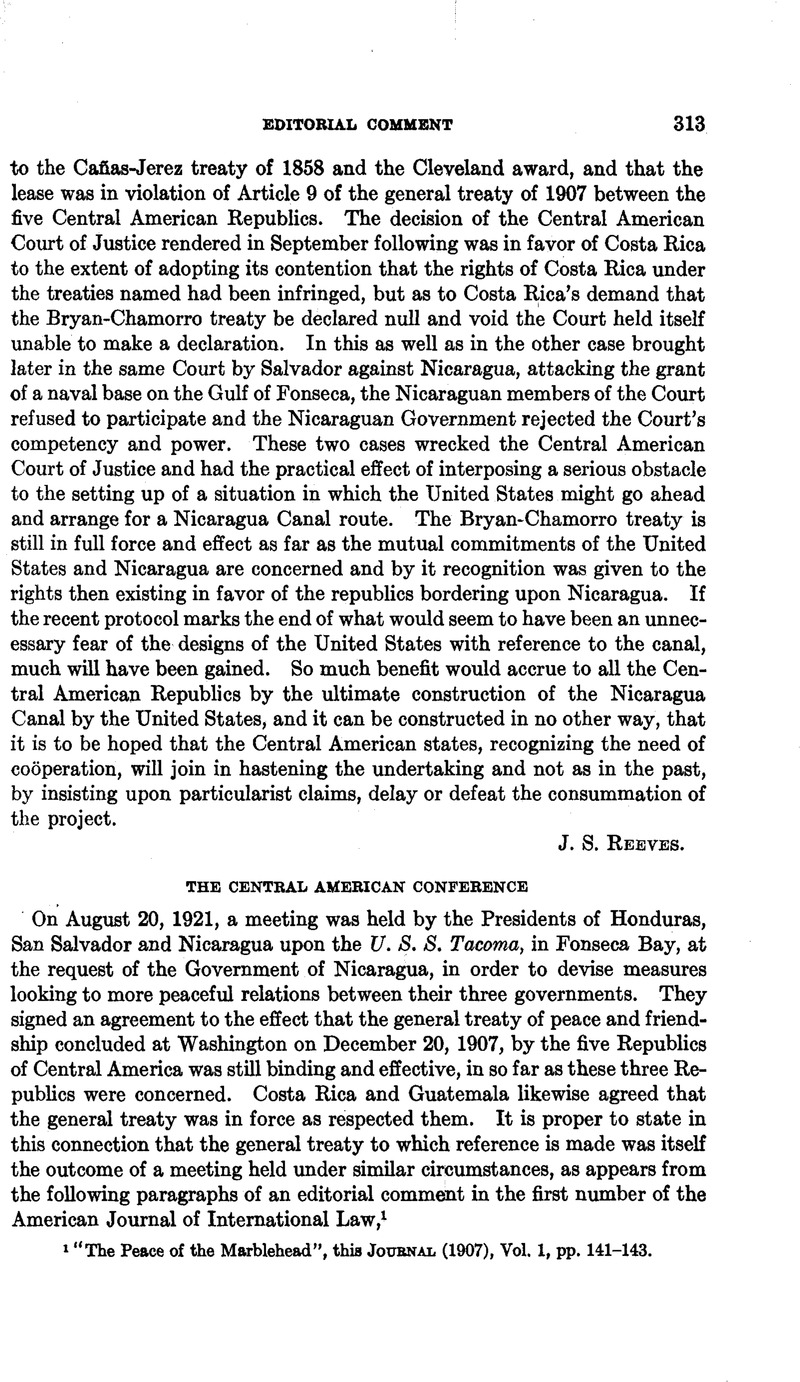No CrossRef data available.
Article contents
The Central American Conference
Published online by Cambridge University Press: 04 May 2017
Abstract

- Type
- Editorial Comment
- Information
- Copyright
- Copyright © American Society of International Law 1923
References
1 “The Peace of the Marblehead”, this Jottbnal (1907), Vol. 1, pp. 141-143.
2 Bulletin of the Pan American Union, January 1923, p. 2–3.
1 Public No. 455, 67th Cong.
2 Congressional Record, February 7, 1923.
3 Congressional Record, February 7, 1923
4 Washington Star, March 1,1923.
5 Washington Star, March 1, 1923.
6 London Times, March 9,1923, p. 7. For a discussion of the contents of the Balfour notenof August 1, 1922, see editorial comment in this Journal for October, 1921, Vol. 16, No. 4,p. 611.
7 Senate Document, No. 86,67thCong., 2dsess.,entitledLoanstoForeignGovernments, p. 67.
8 Further light on the British idea of what the United States should do financially after it entered the war is given in the following extracts from Senate Document, No. 86,67th Cong.,2d sess., entitled Loans to Foreign Governments’.
Under date of December 4, 1918, Mr.Laughlin, Google Scholar, of the American Embassy in London,cabled to the Secretary of State that “Keynes [a British Treasury representative] has suggested in several conversations theory that future aid to Allies should now be taken over by us so that as nearly as possible our loans to Allies should equal those of the British. This thought appears also in letter from the Chancellor to me received today” (p. 17).
On the following day, December 5, 1918, Mr.Davis, Norman H. Google Scholar, Special United States Commissioner of Finance in Europe, wrote to the Honorable Albert Rathbone, Assistant Secretary of the Treasury, as follows:
“In discussing the question of relief to Belgium and Serbia, Keynes told me substantially that he had changed from his original idea of dividing the financial assistance into three parts, because in view of the fact that they have advanced considerably more than we have to these countries, we should be willing to finance practically all of the relief. I told him that we might be willing to finance the relief to the extent of the supplies furnished from the United States, but it would not be because they had advanced more or less to these countries than we have, and that we would not even discuss any arrangements on the basis of what they had done before we came into the war, nor should we take the position that the war should be continued for a year or two in order to enable us to loan as much to the other Governments as the British had loaned them”(p.18).
9 Washington Post, March 11,1923.
10 The Post and the Star, Washington, March 10,1923.


